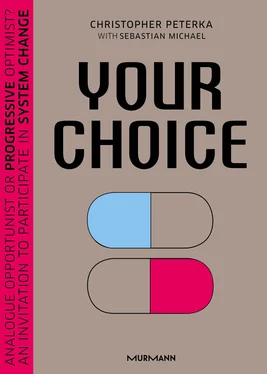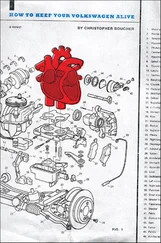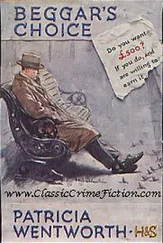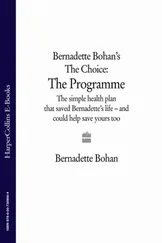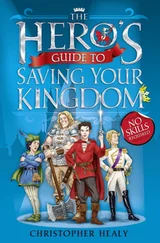So yes, you can say that printing ushered in a liberation.
Fast forward five hundred-odd years, and you find yourself in the dormitory of a pale American graduate at Harvard University. Here, on 4 thFebruary 2004, Mark Zuckerberg, aged 20, launches a website for his fellow students, and calls it The Facebook. The rest is proverbial history. Except that’s not quite it…
You can’t possibly credit Mark Zuckerberg with inventing the Internet, the Internet was already there and very much in use. You can’t even say he invented the social network, there were other people who had tried comparable things before, and not without success. But what Facebook—it soon lost the definitive article—did was transform the way we use social networks and, far more to the point, the way these networks use us.
There’s no doubt that Facebook brings us closer together: it turns the world into a village where you can maintain superficial contact with anyone about anything, any time. That’s the beauty of it: you don’t have to make a phone call, or write emails, or pop round to know that Ali has a new job, Ming a new boyfriend, that James and Tony have split up, and your auntie Debbie is doing well after her fall, thanks. Whether you trek to Tibet or traipse around Tuscany, we can all take part in your adventures. And that’s grand.
For many of us, who have friends and family all over the world, Facebook first, and then other sites with similar functionalities though perhaps slightly different priorities, have become the village well where you bump into people and exchange a few words, update each other, share your triumphs and disasters. Exchange tips and get the gossip. Similar on Weibo, Instagram, QQ, Foursquare, or Jiepang.
[WHAT MATTERS IS WHAT THESE TECTONIC SHIFTS DO TO US AS HUMAN BEINGS.]
There are obvious parallels between the print revolution and the digital revolution, and some less obvious ones too. And we really need to widen the scope now, from social networks to the Internet in general, and to the way we use digital devices. Because as Gutenberg did not single-handedly instigate the Reformation, so Zuckerberg is not the inventor of the Digital Age. We’re clearly using them as figures representing their era; and we take none-too-subtle advantage of the fact that their names so agreeably chime.
How their names chime with any of us may well depend on who we are and when we were born. We, the people writing this book, were both born long ago enough to have experienced a world without the Internet. Our generation is uniquely placed because after us—anyone born since the turn of the millennium, for certain—will simply not know what that was like, life offline. Even for us, it’s become hard to imagine, and we’ve been there.
So maybe our perception of someone like Zuckerberg is different to yours. And depending on where you grew up and went to school, the name Gutenberg may not have meant anything to you at all until just now. It doesn’t matter that much. What matters is what these tectonic shifts do to us as human beings.
That is one of the main questions this book asks and formulates in different ways: what does the technology we have do to us, and who do we become in the culture we create with it? Because that’s what we do with technology: we create culture. The culture that prevailed before the printing press conquered Europe was categorically different to the culture that this technology made possible. And the culture that we live in today is as categorically different to the one our parents knew. When we say ›categorical‹, we are not exaggerating. These are different categories, different dimensions, different orders of magnitude.
So the comparison between the print revolution and the digital revolution in many ways stacks up. Both ushered in new eras that made us think, talk, behave, interact, learn, teach, agitate, do business, find partners, conduct our friendships and relationships in new ways. But there are also some major differences. ›Obviously, there are differences,‹ you might say ›After all, we’re talking about two totally different types of technology, five hundred years apart.‹ Yes. And beyond these obvious differences, there are subtler, and no less important ones, too.
We say that Gutenberg’s invention marks a moment of liberation for us, the people. It’s not totally uncontroversial to say so, and there are ways of arguing that the ignorance most of us lived in before, with its simplicity enforced by circumstances, provided its own kind of unencumbered bliss. But knowledge is better than ignorance. You’re freer if you can make your own decisions about your life and choose how you want to spend your days, and with whom, than if you can’t. The print revolution facilitated this. It made people more independent, it emancipated us from the control of very strict authority. It gave us ways to express ourselves.
Has the digital revolution made us freer? This is a big question that we can’t answer in one paragraph or two, not even in one chapter or two. Clearly you can argue that it has: like printing, it has democratised knowledge and learning. Certainly it has given access to university courses, lectures, literature old and new, and brought simple day-to-day information to millions who didn’t have it before. It’s no coincidence that one major undertaking to make important texts freely available online is called Project Gutenberg.
As people will be quick to point out, the Internet has taken power out of the hands of newspaper and mass media owners and editors and given rise to blogs, independent news sites, and platforms that are known to have played their part in movements such as the Arab Spring in 2011. Twitter is often cited as an important instrument of change. If Gutenberg’s printing press made it possible for people who had never before held a book in their hands to buy one, print on demand and online platforms make it possible for anyone who feels like it to publish their thoughts, be they factual or literary. Truthful, or lies.
[HOW LONG CAN YOU GO WITHOUT CHECKING YOUR PHONE?]
None of which is new: the fact that we have fake news and propaganda, misinformation, and deceit is not the big issue, even though it is clearly an issue. The big issue is that at the same time as making us freer in many respects, the digital revolution has also made us dependent. More than dependent: addicted. It has made us literally, physically, hooked.
Think about it: how long can you go without checking your phone? You may have long since given up on Facebook, but can you do without WhatsApp or WeChat? Never even mind the specific apps: how long do you think you can function without any access to the Internet at all? Seriously?
You may ask—and we hope you do—›Why should I?‹ Because that’s exactly the point. We have become part of the network. We have plugged ourselves in, and we like it here. We may not like the idea of it much, but the pull of the network is greater than our willpower to do without.
And so we may resent the fact that Zuckerberg calls us »Dumb Fucks« for trusting him with our data, but we trust him with it anyway, because we like to know what’s happening in our circle of friends. We feel queasy about ordering everything from Amazon, but the convenience is so compelling, we do it all the same. Google? We know they mine us for what we’re worth, but really, what is the alternative? And that’s the actual question that is creeping up on us now: what is the alternative? Because it’s long gone beyond just being ›in touch‹ with what our friends are doing, or having the convenience of the toaster we ordered today arriving tomorrow. That’s brilliant, of course, but can you exist in our digital age, without the smartphone, without online banking, without being able to use the Internet, at all? Again, you may say, ›Why would I do that‹ And again it’s a fair question, but so is the question: are we still free?
Читать дальше
